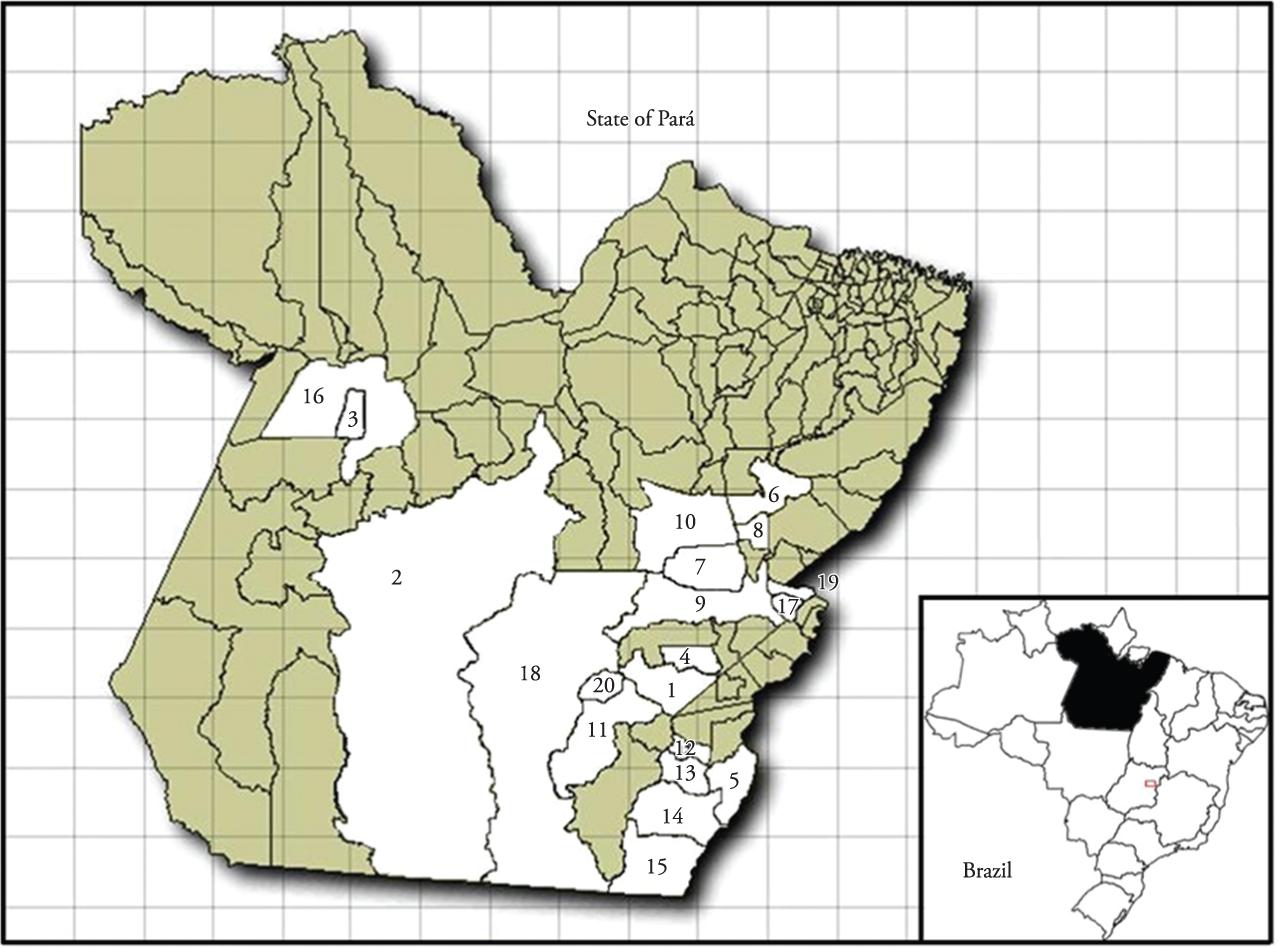Canine ehrlichiosis and babesiosis are the most prevalent tick-borne diseases in Brazilian dogs. Few studies have focused attention in surveying tick-borne diseases in the Brazilian Amazon region. A total of 129 blood samples were collected from dogs living in the Brazilian eastern Amazon. Seventy-two samples from dogs from rural areas of 19 municipalities and 57 samples from urban stray dogs from Santarém municipality were collected. Serum samples were submitted to Indirect Immunofluorescence Assay (IFA) with antigens ofBabesia canis vogeli, Ehrlichia canis, and six Rickettsia species. The frequency of dogs containing anti-B. canis vogeli, anti-E. canis, and anti-Rickettsia spp. antibodies was 42.6%, 16.2%, and 31.7%, respectively. Anti-B. canis vogeli antibodies were detected in 59.6% of the urban dogs, and in 29.1% of the rural dogs (P < 0.05). For E. canis, seroprevalence was similar among urban (15.7%) and rural (16.6%) dogs. ForRickettsia spp., rural dogs presented significantly higher (P < 0.05) prevalence (40.3%) than urban animals (21.1%). This first study on tick-borne pathogens in dogs from the Brazilian eastern Amazon indicates that dogs are exposed to several agents, such asBabesia organisms, mostly in the urban area; Spotted Fever group Rickettsia organisms, mostly in the rural area; andEhrlichia organisms, in dogs from both areas studied.
Ehrlichia; Babesia; Rickettsia; dogs; Amazon; Pará state

